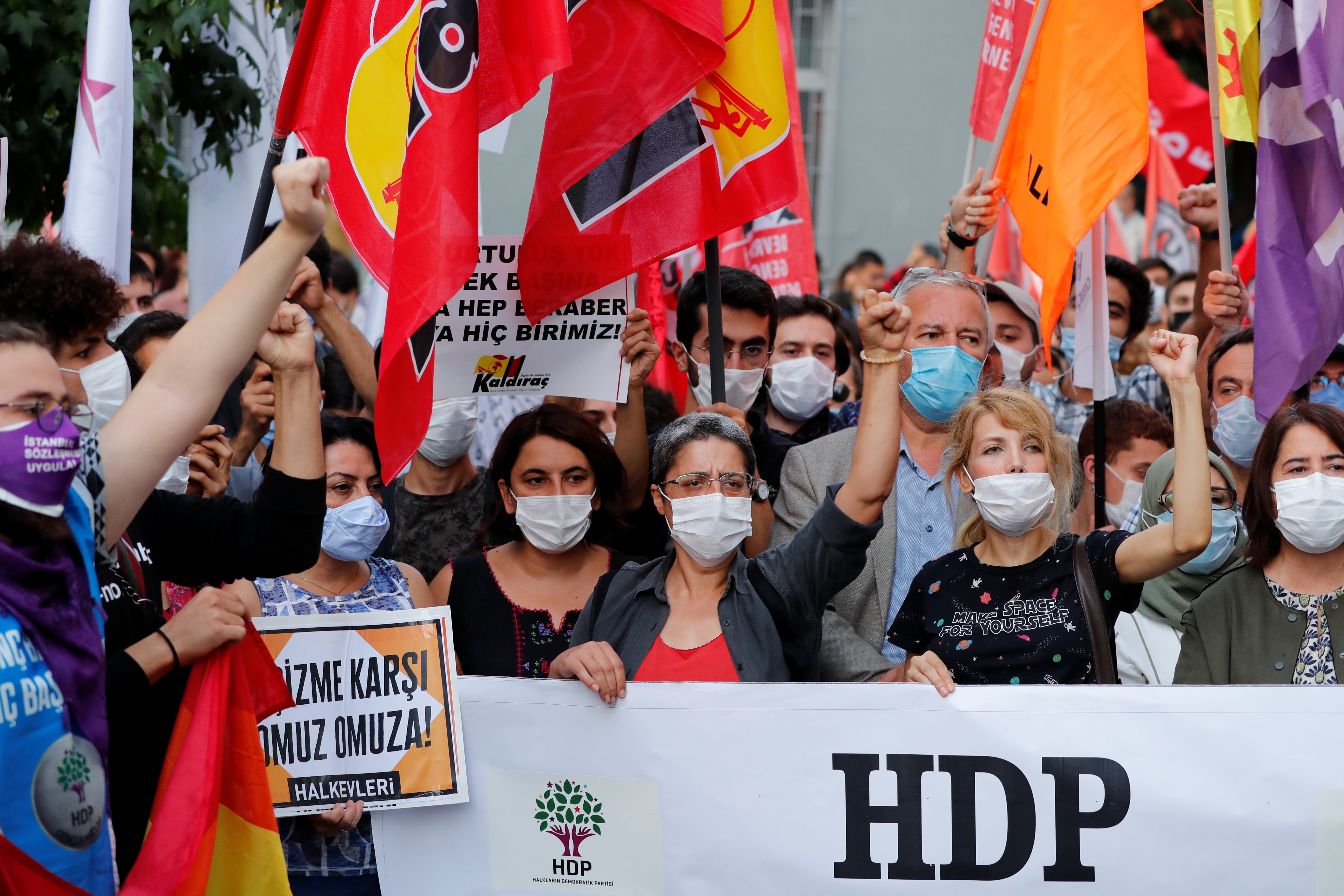Turkey crackdown on Kurdish opposition party
Arrests seen as part of government attempt to suppress opposition

Your support helps us to tell the story
From reproductive rights to climate change to Big Tech, The Independent is on the ground when the story is developing. Whether it's investigating the financials of Elon Musk's pro-Trump PAC or producing our latest documentary, 'The A Word', which shines a light on the American women fighting for reproductive rights, we know how important it is to parse out the facts from the messaging.
At such a critical moment in US history, we need reporters on the ground. Your donation allows us to keep sending journalists to speak to both sides of the story.
The Independent is trusted by Americans across the entire political spectrum. And unlike many other quality news outlets, we choose not to lock Americans out of our reporting and analysis with paywalls. We believe quality journalism should be available to everyone, paid for by those who can afford it.
Your support makes all the difference.Turkish authorities have locked up 20 senior members of the country’s leftist, Kurdish-led opposition party on charges stemming from their alleged participation in protests six years ago.
They were among 82 people ordered to be detained on Friday on charges stemming from days of protest in southeastern Turkey at a time when Isis was threatening to take over the Syrian border town of Kobane and the Kurds in Turkey called for mass protests.
On Monday, the prosecutor sought and obtained a ruling giving him four more days to keep the members of the People’s Democratic Party (HDP) under detention.
Among those detained are a sitting mayor and four former lawmakers.
The crackdown, across seven Turkish provinces, has been condemned by Turkish opposition parties, who describe it as an attempt by President Recep Tayyip Erdogan to further consolidate his grip on power by marginalising leftist Kurds and strengthening his Islamist-rooted Justice and Development Party’s ties to the nationalist National Movement Party.
“The government is putting so much pressure on the HDP because it sees and fears the fact that in the first elections the HDP will play a crucial political role for the democratic future of Turkey,” the HDP said in a statement.
Members of the liberal nationalist opposition Republican People’s Party (CHP), the country’s second political organisation, and other opposition groups also condemned the detentions as a threat to Turkey’s democratic aspirations.
“It is our duty to oppose attempts to liquidate the HDP,” CHP lawmaker Baris Yarkadas was quoted as saying in local media. “Democracy without the HDP is a bird with one wing.”
The Ankara prosecutor, which is pursuing the case, described “acts of terrorism” in which Kurdish-led political organisations connected to the outlawed Kurdistan Workers Party (PKK) “made several calls to the people to take to the streets and commit acts of violence” via social media and news outlets, sparking rowdy demonstrations in 35 provinces.
At least 42 people lost their lives and 682 people were wounded in the protests 6 and 12 October 2014, mostly HDP supporters and PKK sympathisers .
“Roads were barricaded, public buildings and vehicles as well citizens' residences, workplaces and vehicles of citizens were attacked with long-barreled guns, molotov cocktails, fireworks, sticks and stones, several citizens and security officers were wounded and citizens lost their lives in some cities," said the prosecutor’s office.
Pro-government voices cheered on the raids. “The fact that the state did not forget the actions of such terrorists who are hidden among people at home and rehearsed an internal insurgency… means that the last links of the terror within society are cut,” pundit Eray Gulcuer told pro-government CNN Turk.
But many questioned the timing of the raids, which concerned incidents that took place years ago, and accused the authorities of using shaky legal arguments.
“This is simply projecting the de-facto state of emergency towards the past, to a period even previous to the failed coup attempt,” Nacho Sánchez Amor, European Parliament Rapporteur on Turkey, said in a statement. “Turkish authorities seem determined to establish some kind of overall retroactive state of emergency in order to further suppress opposition and any critical voices.”
Since peace talks between the PKK and the Erdogan government collapsed in 2015, some 16,000 supporters and members of the HDP have been arrested, and 5,000 sent to prison, the party said.



Join our commenting forum
Join thought-provoking conversations, follow other Independent readers and see their replies
Comments